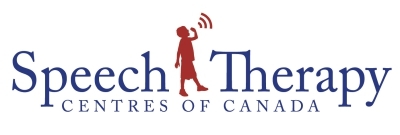
Following our previous article on early warning signs of speech and language problems parents need to look out for, here are five more signs that should prompt a visit to a speech therapist.
Does your child have difficulty pronouncing certain speech sounds?
Although it is natural for children to mispronounce words and make mistakes, continuous difficulty with certain sounds could be a sign of a larger problem. Children are often delayed in speech because of the difficulties and nuances of forming certain sounds. The speech-language pathologist will look at the many reasons for a speech delay. We can help by working with your child to get them over their difficulties, and make learning to speak fun.
Does your child have difficulty swallowing or chewing?
Difficulty with oral motor movements is frequently responsible for chewing and swallowing issues and can be a sign of a number of different conditions. In some instances difficulty with swallowing may occur in combination with a difficulty in speaking. A speech therapist plays a primary role in the evaluation and treatment of infants and children with these disorders.
Is your child struggling with reading or writing?
Language in the form of written words is something that children begin to pick up at a young age, and is incredibly important to their academic development and future workplace involvement. If your child has a literacy difficulty or disorder, they will most likely have difficulty in school. If your child is struggling with certain sounds, rhyming, word games, remembering words, pronouncing words, or breaking them apart into syllables, or has a language or speech delay, then it could cause them to struggle with literacy. There is an interrelationship between oral and written language. An evaluation by a speech therapist is a good way to deal with the overall language and/or speech issue before it impacts real life functional and academic abilities.
Does your child have difficulty with social communication?
Children who have a diagnosis of autism spectrum disorder (ASD) have difficulty with social communication. This may involve verbal and nonverbal communication that we use when communicating with others such as eye contact, greeting others, taking turns in a conversation, maintaining a conversation and more (see www.speechtherapycentres.com). If you notice some of these red flags it does not mean there is a diagnosis. However, it often warrants attention. Consult a professional if you notice your child having issues communicating both verbally and non-verbally. Obtaining education on typical/atypical social communication, having an assessment and meeting a professional who can provide tips, strategies and a possible treatment program is an important and helpful first step in helping your child.
Does your child have difficulty understanding you?
Even though some children are late to talk they should be able to understand at least simple communication (visit www.speechtherapycentres.com for milestones on age appropriate understanding of language). If you notice that your child has difficulty understanding some simple one to two step instructions or doesn’t understand new words by 2 years, it could be the sign of hearing issues, language delay or other problems.
While these signs may not mean your child necessarily needs speech therapy, they may indicate that a consultation with a speech-language pathologist is warranted. An expedient speech-language assessment will give you the information you need to make an informed decision about your child’s needs and speech therapy options.

